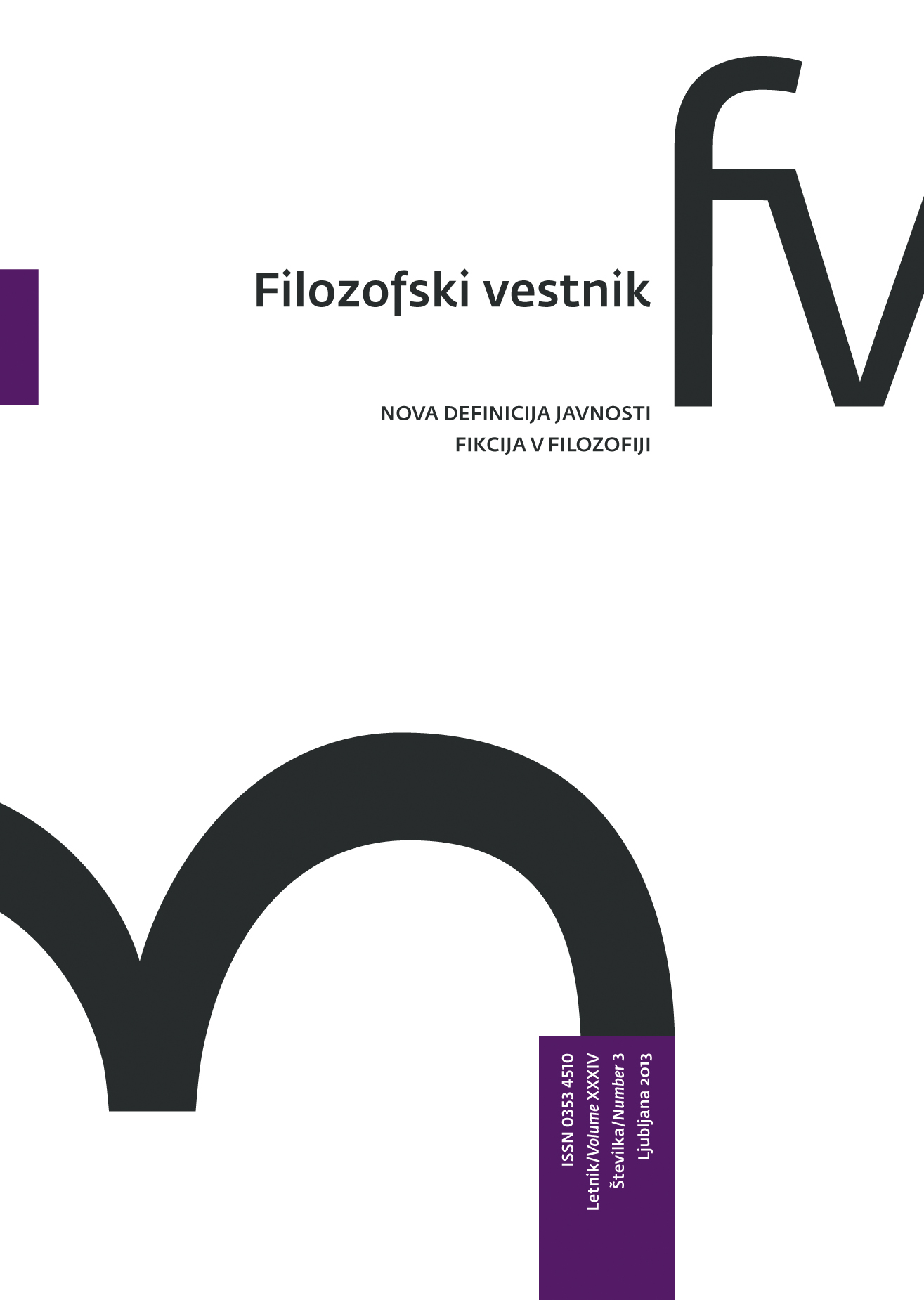Država in javno mnenje pri Heglu
Ključne besede:
nravnost, država, javnost, javno mnenje, subjekt, deloPovzetek
Na ozadju problematike privatizacije javnosti v sodobni družbi članek predstavlja pojmovanje države in javnega mnenja pri Heglu, zlasti v njegovem Orisu filozofije pravice. Hegel državo nasploh pojmuje v okviru razmerja med nravno substanco in subjektom in podrobneje kot samostojno samozavedno mesto občega, ki v moderni dobi bistveno deluje v režimu vednosti in vključuje pravico subjektivne posebnosti. Ta dobi najneposrednejši izraz v javnem mnenju, ki je za Hegla sestavni del zakonodajne oblasti. Ker je mnenje po svoji logiki partikularno in arbitrarno, se temeljni problem sodobne države glasi, kako vzpostaviti sistem posredovanja, ki bi, morda na podlagi pojma občega dela, presegel prevlado načela civilne družbe in bi javno mnenje preoblikoval v javno vednost kot politično kategorijo.Prenosi
Podatki o prenosih še niso na voljo.
Prenosi
Objavljeno
2016-02-07
Kako citirati
Kobe, Z. (2016). Država in javno mnenje pri Heglu. Filozofski Vestnik, 34(3). Pridobljeno od https://ojs.zrc-sazu.si/filozofski-vestnik/article/view/4222
Številka
Rubrike
Nova definicija javnosti
Licenca
Avtorji jamčijo, da je delo njihova avtorska stvaritev, da v njem niso kršene avtorske pravice tretjih oseb ali kake druge pravice. V primeru zahtevkov tretjih oseb se avtorji zavezujejo, da bodo varovali interese založnika ter da bodo povrnili morebitno škodo.
Podrobneje v rubriki: Prispevki





